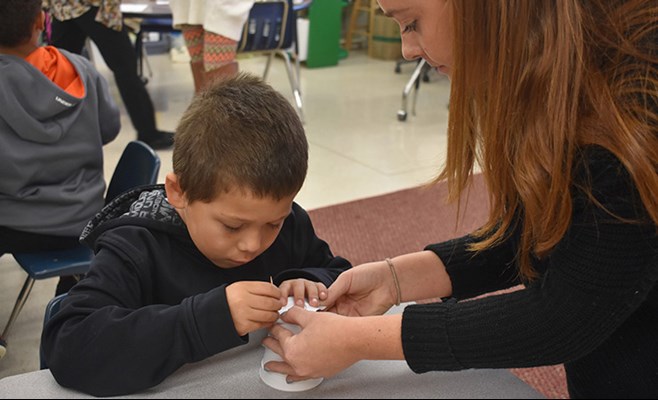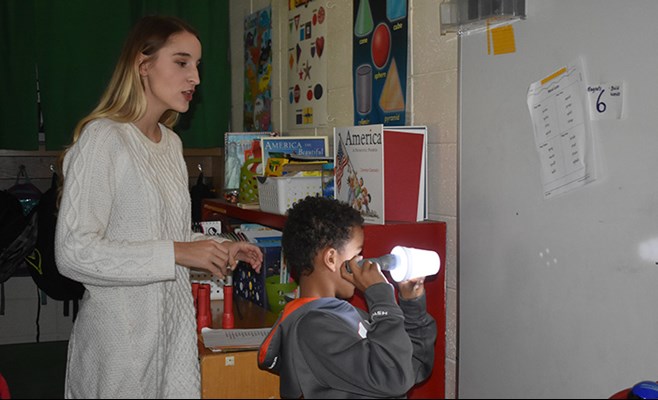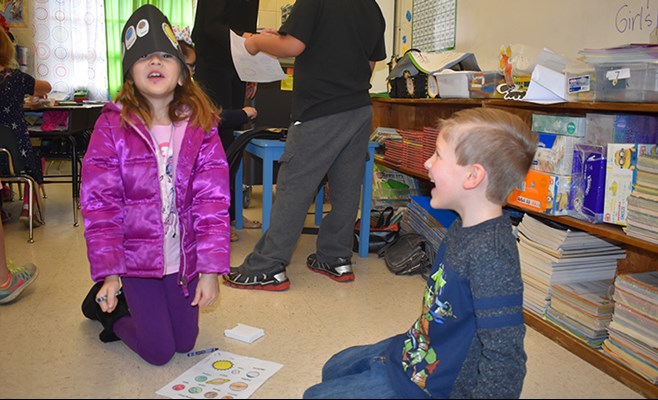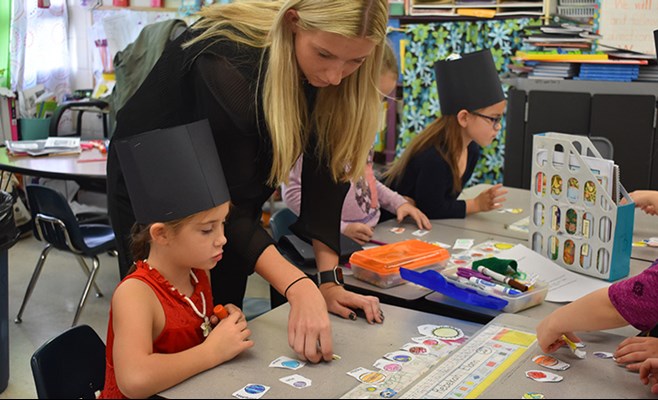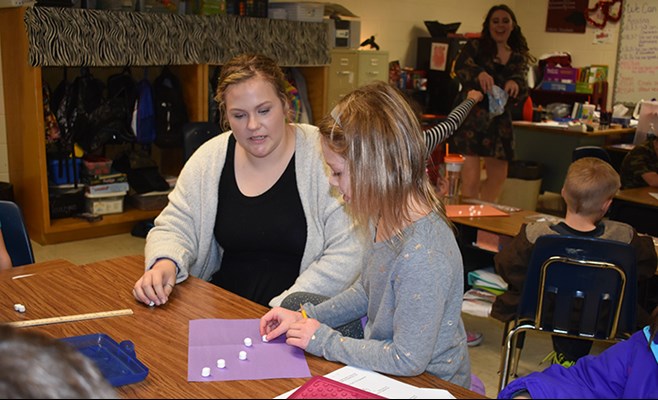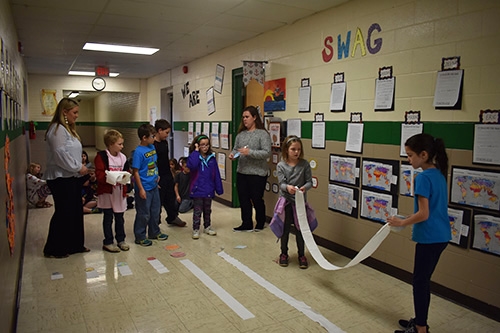
First-graders used a toothpick to poke holes in the shape of a constellation into the bottom of a cup. Then, they shined a flashlight into the cup to project the star formation onto a wall in their darkened classroom at Greenland Elementary School.
University of Arkansas students studying STEM education developed this and seven other activities to present in the Greenland school Nov. 16. Kindergarteners through fourth-graders also learned about moon phases and the solar system through activities that required inexpensive materials such as paper, glue, crayons, water and glitter.
"We can talk theory all day long, but it's very powerful for our students to get the opportunity to teach students in a school setting," said Daniel Barth, assistant professor of STEM education, which stands for science, technology, engineering and mathematics. "They did a great job."
This is the second year Barth has taken a program he developed called Astronomy for Educators into the Greenland district.
"What's different this year is that, instead of my developing activities and the students running them, we had the students develop lessons and activities and go teach," Barth said. "My class focuses on training preservice teachers how to teach STEM. We also took all the lessons and activities my students developed and gave them all in a curriculum booklet to Greenland teachers to be able to replicate."
Barth recently received an Open Educational Resource Incentive Program grant sponsored by University Libraries and Global Campus that will publish his book, Astronomy for Educators, as an open educational resource text available to teachers across Arkansas and the United States.
The book's text is based upon the course of the same name that Barth developed at the U of A. The book is founded on the twin principles of "Experience First" teaching and "Low-Cost Science." Experience First education immerses the student in hands-on activities first and adds vocabulary and mathematical elements afterward.
"This is particularly favorable for ESL students because the language piece of science instruction comes after the experience, making it easier to acquire and retain vocabulary," Barth said. "The Low-Cost Science principle delivers STEM activities for less than $1 per student and ensures that every school, no matter their financial resources, can afford a quality STEM program for their students."
The program has worked well in Greenland. As in all elementary schools, Greenland teachers must focus on core subjects and meet state standards, said Principal Alan Barton.
"Dr. Barth's students come in and specifically target an area in which they have greater knowledge," Barton said. "Unfortunately, astronomy is one of those areas that is touched only lightly by our teachers. This way, students get to go deeper into it with the university students' help."
Barton has partnered with the U of A several times in the 15 years he has been principal, he said, and he has hired U of A graduates to teach at the school.
"They might think they are coming to get a class requirement, but I'm also picking and choosing," Barton said.
Barth's program introduces scientific concepts to children early in an activity-based way, he said.
"You can introduce topics that traditionally should be for older kids when you make them conceptual, something kids can put their hands on," Barth said. "No one said, 'My kids didn't get it.' We call it 'Experience-First' teaching. You give the students an experience and they learn vocabulary to analyze and characterize what they have learned."
At the beginning of the semester in August, his students were skeptical about their ability to teach STEM, Barth said.
"Now, there is more of an 'I can' attitude," he said.
Barth and his students will take part in several more STEM teaching activities before the end of the fall semester, both at Greenland and on the U of A campus.
Topics
Contacts
Heidi S. Wells, director of communications
College of Education and Health Professions
479-575-3138,
